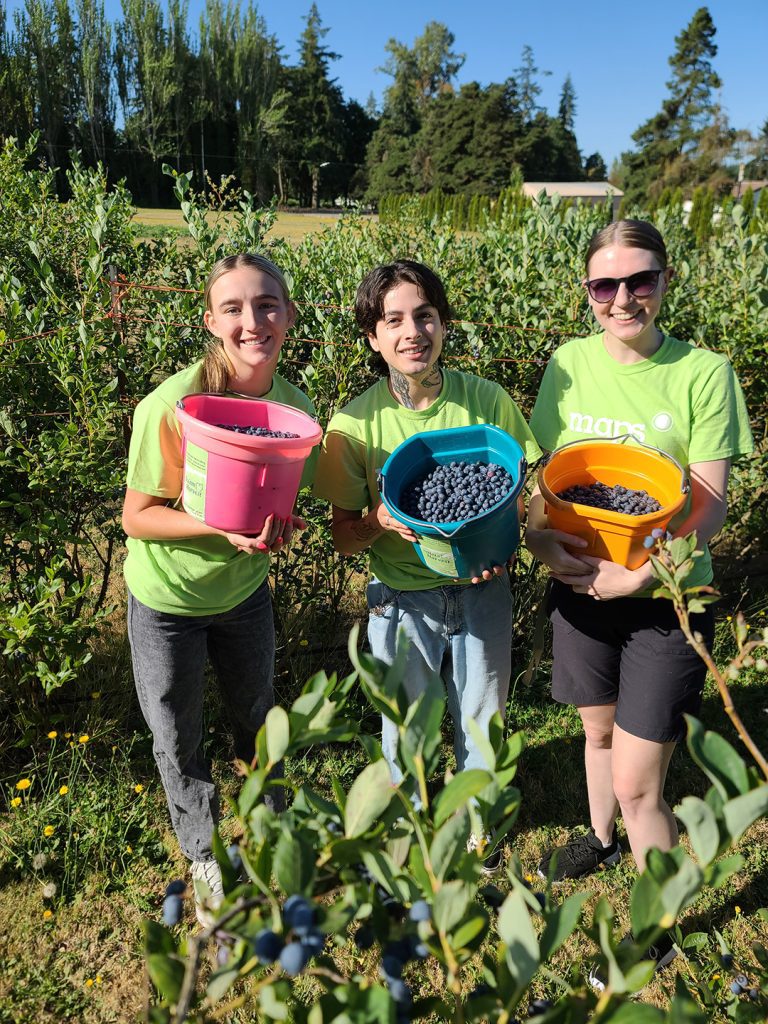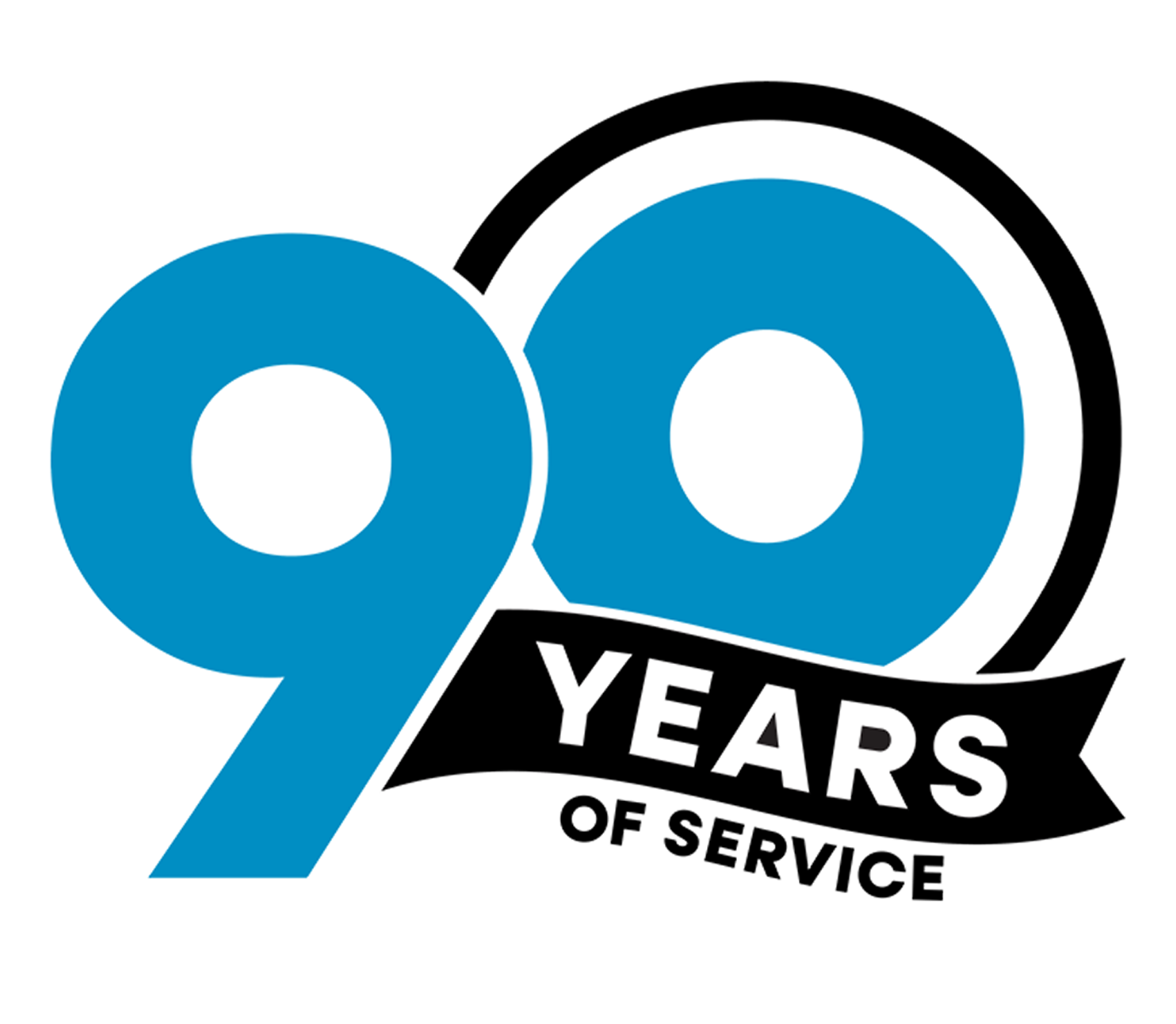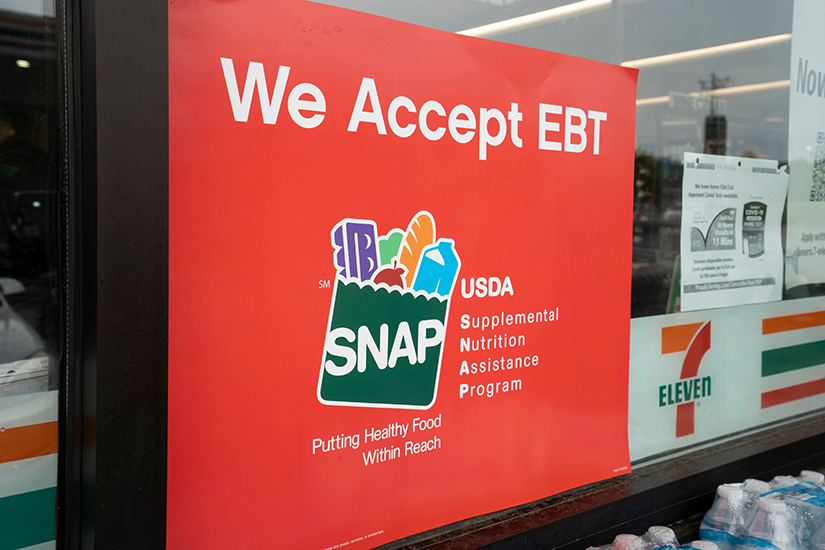With the possibility that SNAP (Supplemental Nutrition Assistance Program) benefits may be disrupted on November 1, 2025, households across Oregon face increased food insecurity. As your credit union, we want you to know we’re here. If you have concerns about making ends meet, let us know. We will do what we can to help you navigate what comes next.
What is Happening and Who is Affected?
As of this writing, 42 million Americans will lose access to Supplemental Nutritional Assistance Program (SNAP) benefits on November 1, 2025—that’s roughly 12% of the population nationwide. In Oregon, those numbers are a little more staggering.
As of 2024, approximately 757,000 people (or, one in six Oregonians) rely on SNAP benefits to cover food costs each month. That number includes 210,000 children and 130,000 adults aged 65 and older. And, according to the Oregon Department of Human Services, the average family receives about $330 per month.
Despite sticky and unfortunate stigmas around the program, the majority of SNAP participants (who are not elderly or disabled) are active in the workforce. According to an analysis of 2021 data, 86% of SNAP households with a non-disabled, working-age adult had earnings that year. And, around 51% of SNAP participants actually worked full-time (35+ hours a week).
In fact, federal SNAP policy dictates that, unless they meet certain exceptions (such as disability or caring for small children), recipients must work at least 80 hours a month to receive more than three months of SNAP benefits in a two-year period.
On Friday, October 31, 2025, two federal judges ruled that SNAP benefits could not be suspended during the ongoing government shutdown and ordered the U.S. Department of Agriculture (USDA) to use contingency funds to continue payments.
Judge John J. McConnell of the U.S. District Court for the District of Rhode Island instructed the department that it “must distribute the contingency money timely or as soon as possible for the Nov. 1 payments to be made.” However, it remained unclear hours after the rulings how much assistance would be provided or when those payments might arrive. In the meantime, here are some local resources that are ready to help.
Food & Pantry Options
Oregonians who lose SNAP benefits in November will still have access to any unused food benefits from earlier months, but they won’t get new benefits. If the hold continues, many will be forced to seek assistance from local food banks and other emergency food providers. Here are a few options:
Marion Polk Food Share

Marion Polk Food Share distributes food for individuals and families to more than 70 local partners, including food pantries, meal sites, and Meals on Wheels deliveries to homebound seniors and adults with disabilities. They also operate an urban farm and support a network of community gardens that connect people and their food, and mobilize community members to address systemic issues that lead to hunger.
Where to find food:
- Check out their list of local pantries, including several in Salem and two in Keizer.
- Contact the Meals on Wheels program, which offers home-delivered healthy meals to those who are 60 years or older, homebound, or otherwise unable to shop for or prepare their own meals.
- Visit one of their Community Meal Sites. There are two in Marion County and two in Polk County.
- Keizer Community Dinner, 5303 River Rd. N, Keizer, Every 4th Wednesday, 4:30 – 6:30 p.m.
- Woodburn Free Community Meal, 1036 E. Lincoln St., Woodburn, Wednesdays, 5:30 – 7:00 p.m.
- James 2 Community Kitchen, 565 SE La Creole Dr., Dallas, Thursdays, 4:30 – 6:00 p.m.
- James 2 Community Kitchen, 242 N. Main St., Falls City, Every 2nd & 4th Tuesday, 4:30 – 6:00 p.m.
- Connect with one of their Mobile Pantries, which are available in Aurora (Every 3rd Wednesday), Hubbard (Every 2nd and 4th Wednesday), Salem (Every 2nd and 4th Tuesday), and Mehama (Every 2nd to last Saturday).
- Download their printable Food Assistance Guide.
These options are community-based and accessible to all. At most locations, you do not have to provide ID, proof of income, proof of address, or proof of citizenship to receive food. And, at many of these local spots, you can connect with additional services, like nutrition support and affordable health insurance. If you can’t make it to a food pantry, you can designate someone to pick up food on your behalf by filling out an Authorized Representative Form. Once completed, you can give it to the person picking up food for you and have them bring it with them to the food pantry.
Oregon Food Bank
Oregon Food Bank is a network of food banks and pantries that provides free food across the state (and in Southwest Washington). No proof of income or documentation is required. This is, by no means, a comprehensive list, but here are a few local options:
- ARCHES (Community Action Agency), 615 Commercial Street NE, Salem
- Capital Park Food Pantry, 410 19th St. SE, Salem
- Union Gospel Mission – Men’s Mission, 777 Commercial St. NE, Salem
- HOAP Services (NW Human Services), 694 Church Street. NE, Salem
- Keizer Community Food Bank, 4505 River Road N., Keizer
- Ella Curran Food Bank, 870 N. Main St., Independence
- SDA Dallas, 589 SW Birch St, Dallas
- Dallas Food Bank, 322 N. Main St. #180, Dallas
- Stayton Community Food Bank, 1210 Wilco Rd., Stayton
- Silverton Area Community Aid, 1030 N. 1st St., Silverton
- Silver Creek Fellowship – Mission of Hope Pantry, 822 Industry Way, Silverton
- AWARE Food Bank, 152 Arthur St., Woodburn
- SVDP St. Luke’s, 417 Harrison St., Woodburn
- Wilsonville Community Sharing, 29796 SW Town Center Loop E., Wilsonville
School Lunches
Many Oregon schools participate in the Community Eligibility Program (CEP), which allows them to offer free meals to all students. Children attending public schools may receive no-cost meals if their household income is within the limits of the Oregon Expanded Income Guidelines. Families in need should check with their school to see if they need to complete an application.
How Maps Credit Union Can Help
If you’re a member and you’re worried about making ends meet, call us at 503.588.0181 or stop by any branch. You may be eligible to skip your November or December loan payment if you have an eligible loan in good standing (terms apply), or we may be able to help you find temporary ways to ease your monthly payments. In short: You don’t have to face this alone.

